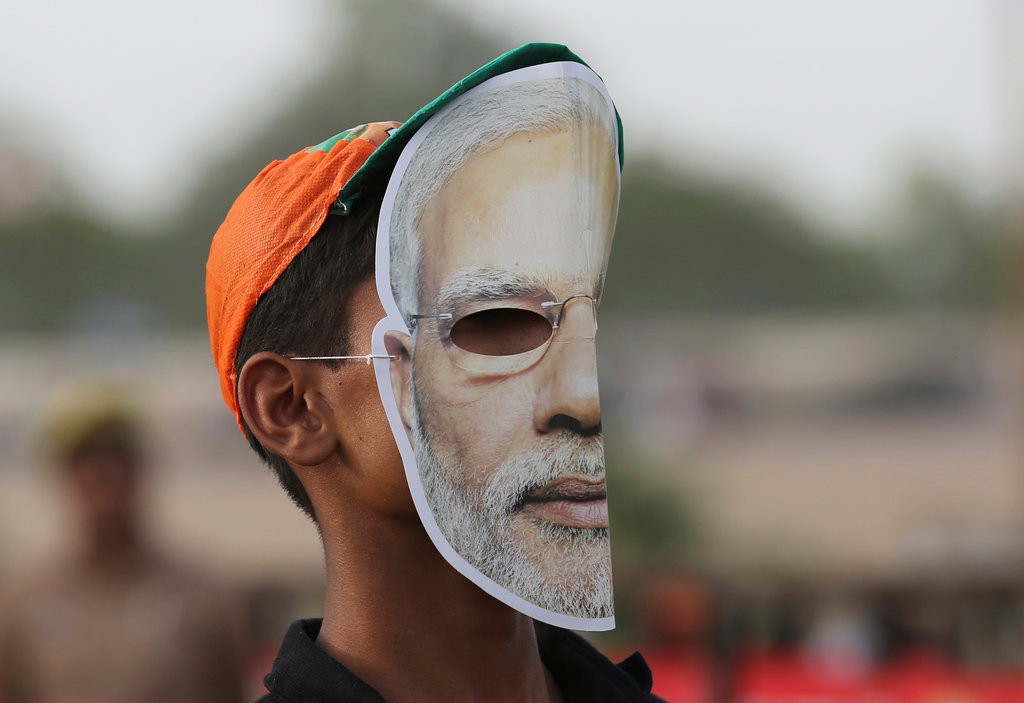In an opinion piece published by The New York Times (the fort of left-liberal thought), Ruchir Sharma, Head of Emerging Markets Equity and Chief Global Strategist at Morgan Stanley Investment Management has argued that ‘I Wanted Ronald Reagan. India Kept Electing Bernie Sanders’. “This year the B.J.P. has been announcing new government programs that would make Mr. Modi feel right at home in a Bernie Sanders town hall meeting, including cash transfers for farmers, wage supports, free health care and a pucca (concrete) home with gas and electricity for every Indian family,” wrote Sharma in the concluding paragraph.
Ruchir Sharma writes that his last hope of ‘minimum government, maximum governance’ was with PM Modi but he turned out to be as socialist as any other previous leader. The central argument of Sharma’s article is that Modi’s record of economic growth in Gujarat was due to ‘executive order’ not by structural economic reforms and tried to do the same at the national level. The lack of economic reforms arguments falls short on facts given Modi government implemented some of the long-held structural reforms. Creation of a uniform market through GST was being suggested by policymakers since the last three decades but no government has been able to bring all the states on board. Modi government introduced GST in a historic midnight session at parliament. For decades India followed Nehruvian socialism and later ‘capitalism without exit’ after economic reforms. The Modi government changed the political-economic structure of the country into capitalism with the implementation of Insolvency and Bankruptcy Code (IBC). The institutionalization of ‘inflation control’ through the formulation of the Monetary Policy Committee was another long due structural economic reform brought by the Modi government.
In the next paragraph, he raised some good points like increasing of funds to MGNREGA by Modi government. However, soon after he departs to the economic ideology of the ruling party. The second major argument of Ruchir Sharma is that BJP’s economic ideology “is grounded in Swadeshi, a left-wing economic nationalism”. The statement shows a lack of depth in Sharma’s studies on the incumbent party and government. He did not undertake the painful task of reading the books written by advisors of this government or assessing their ideology and made sweeping remarks based on ‘presumption’. Some of the most prominent advisors to this government include Jagdish Bhagwati, the most influential figure in pro-globalization economics. Arvind Pangariya, protégé of Bhagwati was appointed the first vice chairman of NITI Aayog. Bibek Debroy, an ardent supporter of the Austrian school of economic thought heads the Economic Advisory Council to Prime Minister. Sanjeev Sanyal, the person who wants to limit the central government defense, enforcement of law, and internal security is Principal Economic Advisor to Finance Ministry.
Therefore it is very clear that ‘Swadeshi’ in terms of not acceptable to foreign goods, services and ideas is not even remotely related to Modi government. All the advisors to the government and as well as PM himself are ardent supporters of globalization. Modi government liberalized FDI policy to make the country one of the most ‘open’ economies in the world.
Ruchir Sharma is very naive to ask for Regan in India given the fact that the economic condition of India and the United States are very different. The comparison of Indian realities with that of western countries and civilization and Indian leaders with American ones also shows ‘orientalist’ thought process of Sharma.
In a developing country like India where ‘middle class’ is still the minority and the majority of the population is poor compared to developed economies, Sharma criticizes Modi government for providing basic necessities like ‘cash transfers for farmers, wage supports, free health care and a pucca (concrete) home with gas and electricity’. This argument shows that Ruchir Sharma did not read the economic history of the West where the government actively supported the welfare of the masses and provided them basic necessities. Without minimal welfare, there would be no ‘social mobility’ and the poor and marginalized section of society would lose faith in the government. The ‘trust’ of Indian voters in the Modi government is among the highest in India and that is because ‘common people’ do not feel alienated under the leadership of Modi.
